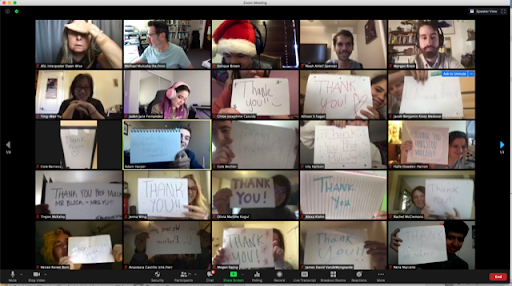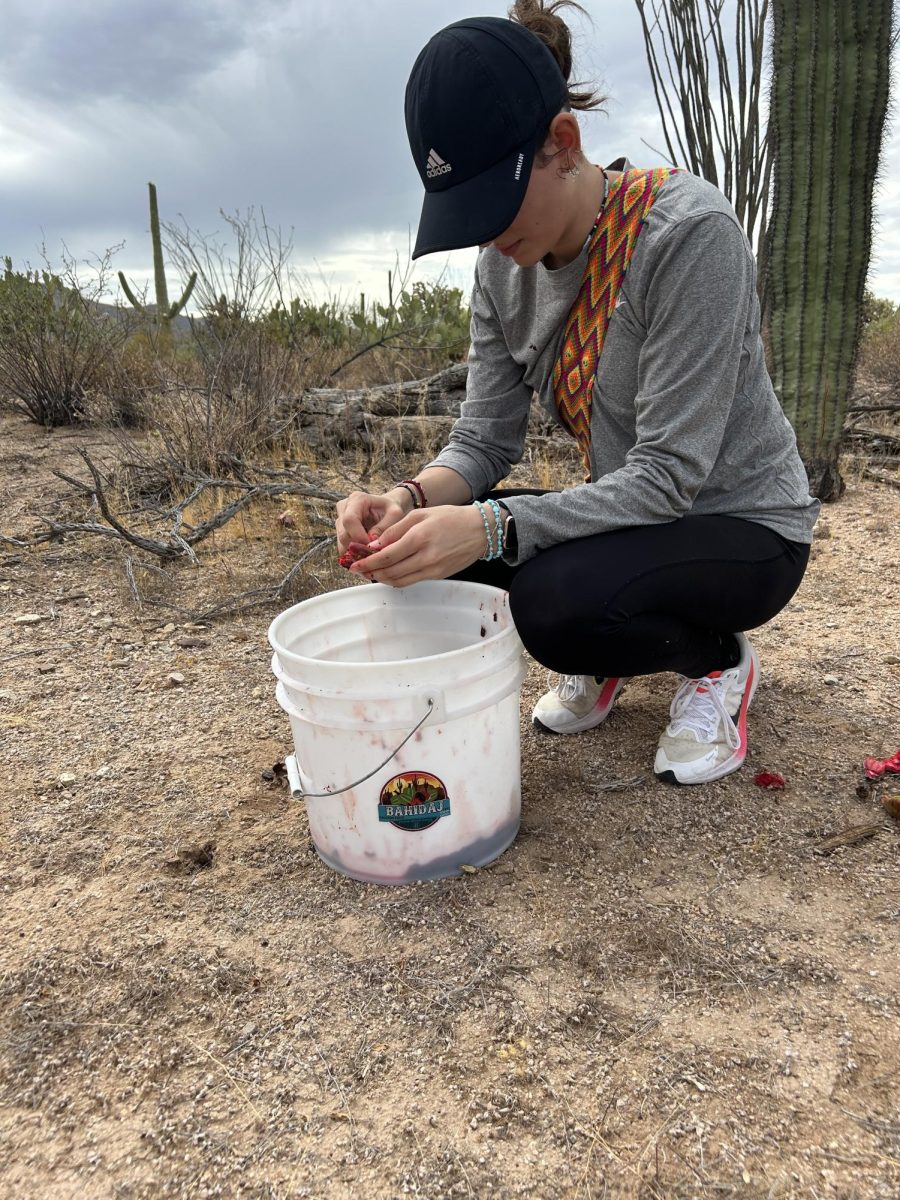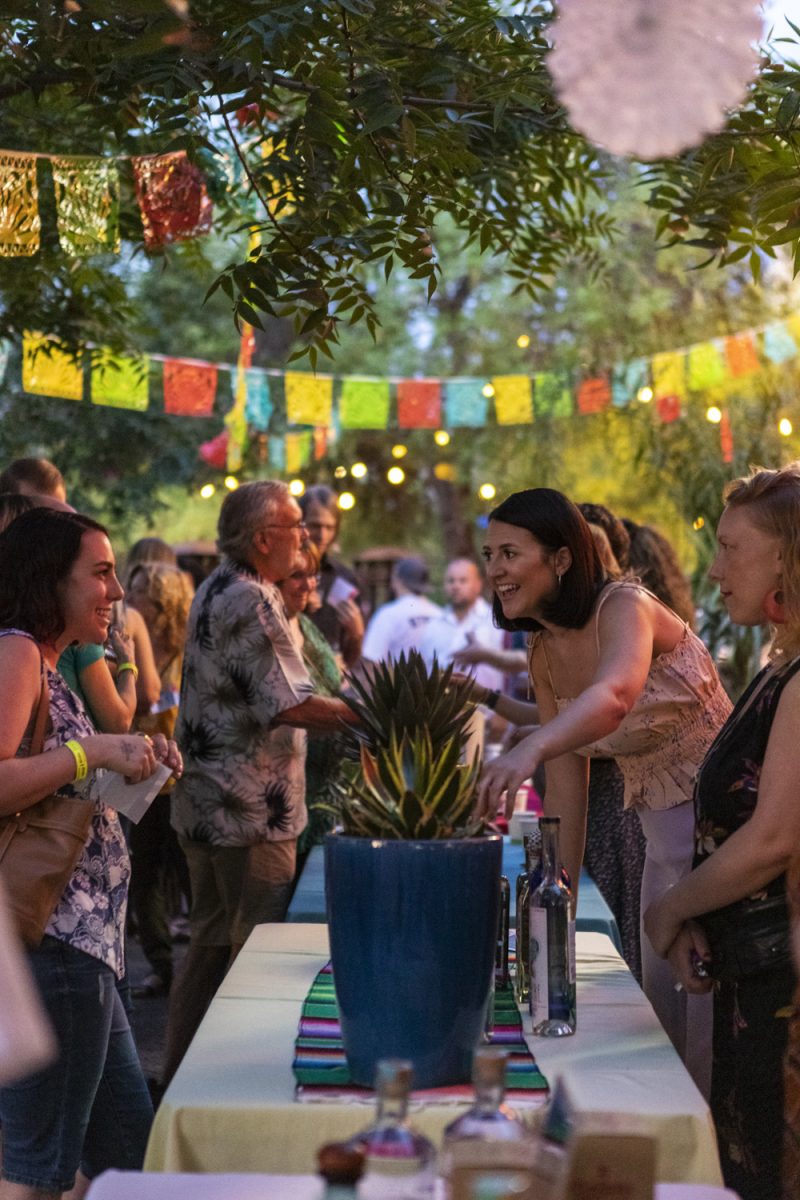The transition to a virtual semester has been troubling for many. Online lectures, discussions and meetings presented a completely new and unfamiliar learning experience that not only students, but also teachers had to adapt to.
On top of the responsibility of managing material that needs to be taught, teachers were also faced with rising challenges from their students.
As the semester progressed, teachers found that students had difficulties adjusting to the online learning environment and overall adversity of the pandemic. In response, teachers took necessary actions in order to accommodate for these challenges.
Many students at the University of Arizona recognized their teachers’ forgiving efforts and worked together to show their appreciation.
RELATED: OPINION: Stuck in the U.S. for the holidays: A reality for many international students
On Wednesday, Dec. 9, a film and television class collaborated with one another to use their final Zoom meeting to thank their professor.
Inspired by a Tik Tok trend, the students joined the Zoom meeting with all of their cameras off. Once the professor noticed this abnormal lack of student participation, more than half of the class turned back on their cameras to reveal handwritten signs.
The screen was filled with students holding up messages that expressed their gratitude for the work their professor has done for them this fall.
Adam Harper, a film and television major, spoke on behalf of his class to explain why they were all so thankful.
Harper discussed how the academic year as a whole has been presented in a way that allows for education but in a less effective format than in-person instruction does. Yet, despite many unfamiliar challenges the online environment has presented, Harper said that his FTV 200 class, taught by David Mulcahy, had been one of the better experiences of his online education.
“Our professor has been very understanding of how our year has been, and he has been able to accommodate for that,” Harper said.
Harper described how Mulcahy allowed for a format where he gave as much instruction as he could regarding the subject matters in order to give his class everything they needed to come up with their own conclusions on certain matters.
“[Mulcahy] is able to show us the whole idea of what it is that we are looking at so we can give our stance on the matter as opposed to just giving us the materials to find the information,” Harper said.
Mulcahy said he understands that students have had mental and emotional challenges that have affected their lives and, consequently, are going to affect their performance in class.
“What I’ve tried to do as much as possible is just acknowledge that we are in this environment which is not normal, which is strange and which is adding a whole bunch of different pressures on people,” Mulcahy said.
As a professor, Mulcahy is still working to do what school and learning means but while not dismissing the fact that we are doing it in midst of a pandemic that has had real impacts on many people.
Although it has been tough to negotiate where to ease back and where to be more flexible in regards to material, Mulcahy recognizes the importance of listening carefully to his students and understanding their situations in order to keep moving forward in the class.
Megan Ewing, a double major in journalism and film and television, also discussed how Mulcahy was always open to hearing her and her classmates’ opinions and how he worked to change his own plans to fit their needs.
RELATED: TOPIC OF THE WEEK: What movies, songs or events make the holiday season brightest for you?
“[Mulcahy] consistently checked in with each of us, hosting zoom meetings to get opinions of students on what’s working and what isn’t and what he can do as a professor to help us through these unprecedented challenges,” Ewing said.
The students within the FTV 200 class respected their professor’s ability to step back and make adjustments in order to ease the struggles of the troubling semester and found no better way to prove their appreciation than by recreating a Tik Tok trend and illustrating it through the screen.
“I think the main reason I appreciate these accommodations is that [Mulcahy] is going above and beyond what has become our normal understanding of education and has really embraced what the cultural origins of education is truly meant to be,” Harper said.
Mulcahy said he was more than surprised to see this reaction from his students. At the best of times, it’s hard for a teacher to understand what students are thinking and feeling. It was clear to teachers like Mulcahy this semester that Zoom makes this even more difficult as it’s hard to understand what’s going on behind the other side of the screen.
“When I saw all of those thank you’s, what I was able to realize is that we did connect this semester and we did enjoy the time we spent together,” Mulcahy said.
In difficult circumstances such as the one we are currently presented with, it is important to show gratitude towards the individuals who are striving to resolve any added stresses.
This class of FTV 200 is one of many to recognize their teachers’ valuable involvement this semester.
Many UA students have noticed the support their professors have provided in order to alleviate possible hardships and are extremely grateful to have individuals who aim to listen, understand and assist them.
Follow Abbie Kosoc on Twitter















